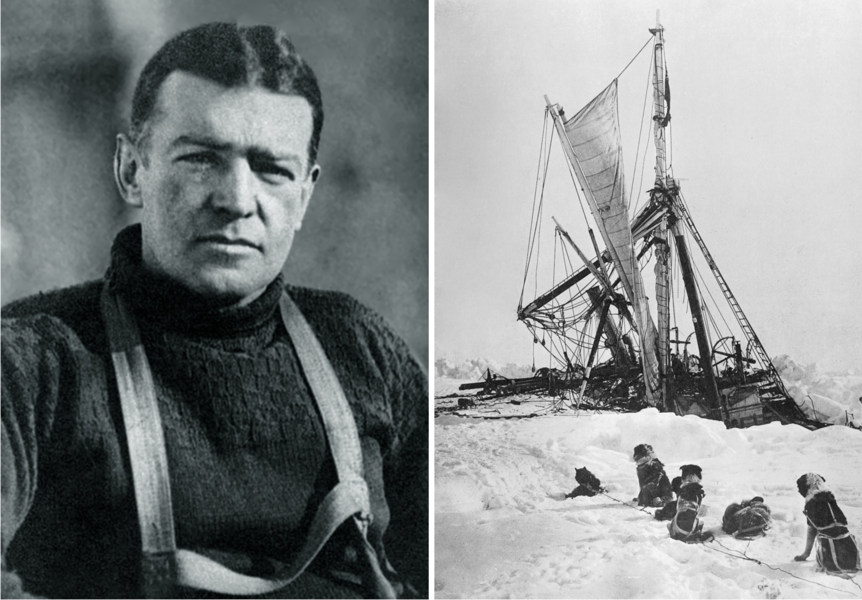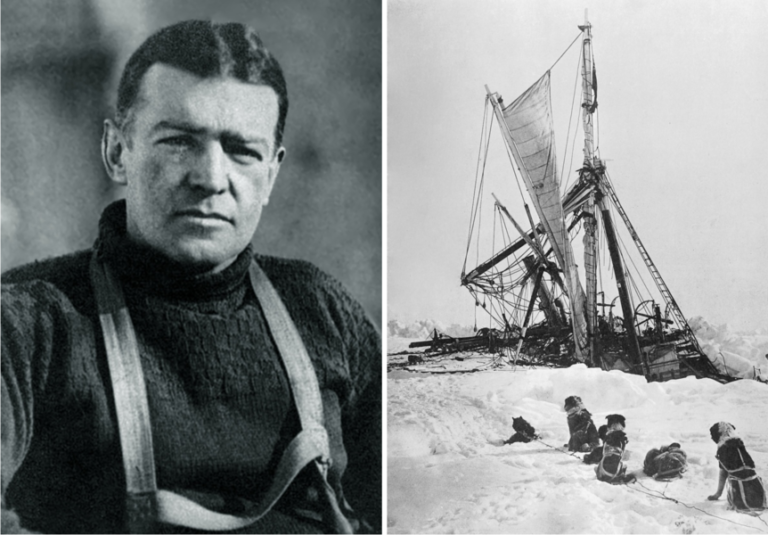
Leading in times of crisis: How healthy optimism works
Crises are as much a part of business as stormy weather at sea. But what if the storm lasts longer? 3 impulses for strong leadership in a crisis.

He conveyed optimism in a seemingly desperate situation: British expedition leader Ernest Shackleton and his team survived a two-year struggle for survival in the Antarctic Ocean. What can leaders learn from him in times of crisis?
Roald Amundsen, Robert F. Scott – names of adventurers that everyone knows. Ernest Shackleton is different: to find out about him, you have to take a closer look at polar expeditions in the early 20th century. None of his expeditions reached their destination. His merit lay elsewhere: in his unwavering leadership.
Shackleton proved this above all during the great expedition he undertook in 1914. With a crew of scientists, craftsmen and sailors, he wanted to cross Antarctica for the first time. But the mission failed on the way: the sailing ship Endurance first froze in the pack ice – and was ultimately crushed by the drifting masses of ice.
From then on, the men’s only concern was to return home alive. They tried to proceed on foot, the heavy lifeboats in tow – but as it turned out, with no chance of reaching safe mainland. For months, the team camped on the ice until the summer came.
In their lifeboats, the men made it across stormy seas to the barren Elephant Island. Together with five men, Shackleton risked everything and continued on to South Georgia – where they actually reached a rescue whaling station after weeks. After a two-year odyssey, the entire team returned safely to Britain in 1916.
Presence, structure and humor – essential under uncertainty
Thanks to the records of crew members, it is well documented how the expedition leader acted in critical situations. In the book “Shackleton’s Way”, authors Margot Morrell and Stephanie Capparell derive rules for the management of companies. Especially these:
Shackleton story as an impulse for a management workshop
Companies are rarely a matter of life and death. How can the Shackleton rules be applied here in a meaningful way? In our experience, the adventurous story is ideal as an impulse for a management workshop. This leads to a reflection:
Reflection should not cause managers to put themselves under additional pressure. On the contrary: they not only take away new ideas, but also recognize what is already working well.
Book recommendation:
Margot Morrell, Stephanie Capparell: “Shackleton’s Way – Leadership Lessons from the Great Antarctic Explorer”.
Movie tip:
The wreck of the “Endurance” was not found until 2022 – great documentary by National Geographic about the search for clues and the story of Shackleton, with breathtaking original footage by expedition photographer Frank Hurley.

Crises are as much a part of business as stormy weather at sea. But what if the storm lasts longer? 3 impulses for strong leadership in a crisis.

He conveyed confidence in a desperate situation: British polar explorer Ernest Shackleton and his team survived a two-year battle for survival in the Southern Ocean. What can leaders learn from him in times of crisis?

Getting an IT project across hundreds of organizational units to the finish line? Our colleague Mathis takes a sporty approach. In our interview, he tells us what excites him about project management as a consultant and why he goes to the boxing ring to compensate.
2021 Grosse-Hornke